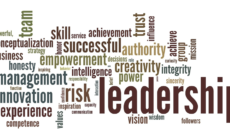I recently enrolled in a 10-week, virtual, professional development/certification program for coaches called Arts Based Experiential Learning (ABEL). The program aims to strengthen key leadership and innovation skills such as readiness to learn, cognitive agility, collaboration and problem solving. Developed by the lovely folks at Creating Futures That Work, “the ABEL System combines powerful arts-based experiences with unique instruments that quantify and track skill mastery. Over the past decade, its impact has been proven through successful use in hundreds of corporations, educational institutions and non-profits.” (No previous art skills or experience needed.)
The picture above represents in-class work using the Japanese marbling technique known as Suminagashi. Done quickly with water, print paper, paints, a variety of brushes and fish wire, this particular piece was my final effort out of a dozen or so different assignments. I had never done this before and wasn’t so sure what I was in for (this goes for the whole class in reality :)). And I am glad that I did! It has been a fantastic learning experience; the program is rich in creativity and imagination, deep in perspective expansion and just plain fun! Opportunities abound to bring these learnings into my professional practice and personal growth.
This edition’s featured article, Failure and Rescue by Atul Gawande, MD, is his commencement address to the 2012 graduating class of Williams College. Insightful and thought-provoking, Dr. Atul Gawande’s perspective continues to resonate. As we aspire to professional goals, seize opportunities and propel our careers forward, we will make mistakes and fail. What we learn, how we adapt and the steps we take to further our development matter most. “…A failure often does not have to be a failure at all. However, you have to be ready for it—will you admit when things go wrong? Will you take steps to set them right?—because the difference between triumph and defeat, you’ll find, isn’t about willingness to take risks. It’s about mastery of rescue.”
I have culled a wide variety of additional reading and listening perspectives to consider. There is, by design, no particular overarching theme; just a variety of ideas that interested me and further sparked my curiosity. I will share these and others pieces over the coming editions.
Articles
Harvard Business Review: Leadership Training Shouldn’t Just Be for Top Performers. “Ultimately, ensuring that the leadership development paradox doesn’t happen is critical, as the success of organizations depends as much on the ‘averagely talented’ as the talented few. Amid this war for talent that currently has no geographical limitations and is showing no signs of stopping, investing in the ‘rest’ ensures you have a strong bench and protects you from flight risk in the Great Resignation.”
Harvard Business Review: The High Cost of Poor Succession Planning. “Companies and institutions must do a better job of getting CEO succession right—their organizations, their industries, and their market returns depend on it…Microsoft shouldn’t have required a long and public search to conclude that Nadella was the right leader to get the company back on track after Ballmer’s years of struggle. It should have already had him—and even other potential successors—waiting in the wings. How many rising stars like Nadella do you have at your company—and what can you do tomorrow to put them on a path to becoming your next (and ideally best ever) CEO?” [KJ Note: This article can be broadly construed to encapsulate succession planning at all organizational levels.]
Forbes: How Failure Actually Grows Your Innovation Culture. “Creating an organizational framework in which projects and innovators can still succeed in spite of, or even because of, failures will serve to accelerate innovation and better support innovators.”
Fast Company: Employee engagement is out. Here’s a better metric. “‘Engaged employees don’t necessarily produce ‘great work’ argues Gary Beckstrand of O.C. Tanner. Here are five key behaviors of employees who produce great work and how to encourage them.”
WorkLife: Overcoming resume gaps. “‘Returnships’ on the rise, as employers increasingly step up efforts to hit gender equality goals.”
The New York Times Magazine: Tech Companies Face a Fresh Crisis: Hiring. “Recruiters in tech are desperate for workers. But candidates are the ones who hold all the power.”
The New Yorker: Brené Brown’s Empire of Emotion. “How a Texan’s stories teach a nation to be vulnerable.”
Blog Posts & Opinions
The Daily Stoic: You Have To Get To The Outside. “This is what we need to do as well, in sports, in life, in our thinking, in our choices. Get to the outside. Don’t be trapped inside. Get perspective.”
The New York Times: Tim Urban: How Covid Stole Our Time and How We Can Get It Back. “These two delusions — that we have countless time ahead of us and that we can’t change our course — are a recipe for complacency. Shedding them can wake us up and inspire us to live more wisely. The past couple of years has left us with a joy deficit. When we picture a post-Covid world, we imagine having our old lives back. But we can actually go a step further and make up for the missed experiences, flipping the deficit into a surplus. If Covid has given us anything, it’s a rare chance for a reset. Let’s take it.”
Rich Litvin: This simple tool will increase your vision and your impact. “Yancey Strickler is the co-founder of Kickstarter. One day he was drawing a hockey stick graph of the scaling journey for entrepreneurs, when he had an insight. What if the growth curve of business was just one corner of the picture?”
Podcasts
TEDMonterey: What you discover when you really listen. “‘Every conversation has the potential to open up and reveal all the layers and layers within it, all those rooms within rooms,’ says podcaster and musician Hrishikesh Hirway. In this profoundly moving talk, he offers a guide to deep conversations and explores what you learn when you stop to listen closely.”
Fast Company: Jeff Daniels explains the ‘thrill of working without a net.’ “The celebrated actor of stage and screen dives into the controlled free fall that is his creative process.”
The Knowledge Project: Seth Godin: Failing On Our Way To Mastery. “Seth and Shane chat about creative work, fear, shame, trusting yourself, what it means to be a professional, how to become an observer of reality, emotional labor, how we learn and so much more.”
Arts, Music, Culture & Humor Corner
YouTube: “Reel Wisdom: Lessons from 40 Films in 7 Minutes”
The Guardian: Ziggy bows out, Madonna scares the pope and Dylan goes electric: 50 gigs that changed music. “Five decades after David Bowie’s seminal tour, our music writers reflect on the concerts that have left a mark, from Billie Holiday to Billie Eilish.”
The Atlantic: What If We Just Stopped Being So Available? “Today’s norms of responsiveness are ridiculous. We shouldn’t apologize for failing to meet them.”
The New Yorker: Happy-Go-Lucky. “’Who are you?’ I want to ask the gentle gnome in front of me. ‘And what have you done with Lou Sedaris?'”
Reflections
“The real voyage of discovery consists not in seeking new landscapes but in having new eyes.”— Marcel Proust
“It is six A.M., and I am working. I am absentminded, reckless, heedless of social obligations, etc. It is as it must be. The tire goes flat, the tooth falls out, there will be a hundred meals without mustard. The poem gets written. I have wrestled with the angel and I am stained with light and I have no shame. Neither do I have guilt. My responsibility is not to the ordinary, or the timely. It does not include mustard, or teeth. It does not extend to the lost button, or the beans in the pot.
My loyalty is to the inner vision, whenever and howsoever it may arrive. If I have a meeting with you at three o’clock, rejoice if I am late. Rejoice even more if I do not arrive at all.
There is no other way work of artistic worth can be done. And the occasional success, to the striver, is worth everything.
The most regretful people on earth are those who felt the call to creative work, who felt their own creative power restive and uprising, and gave to it neither power nor time.”— Mary Oliver









